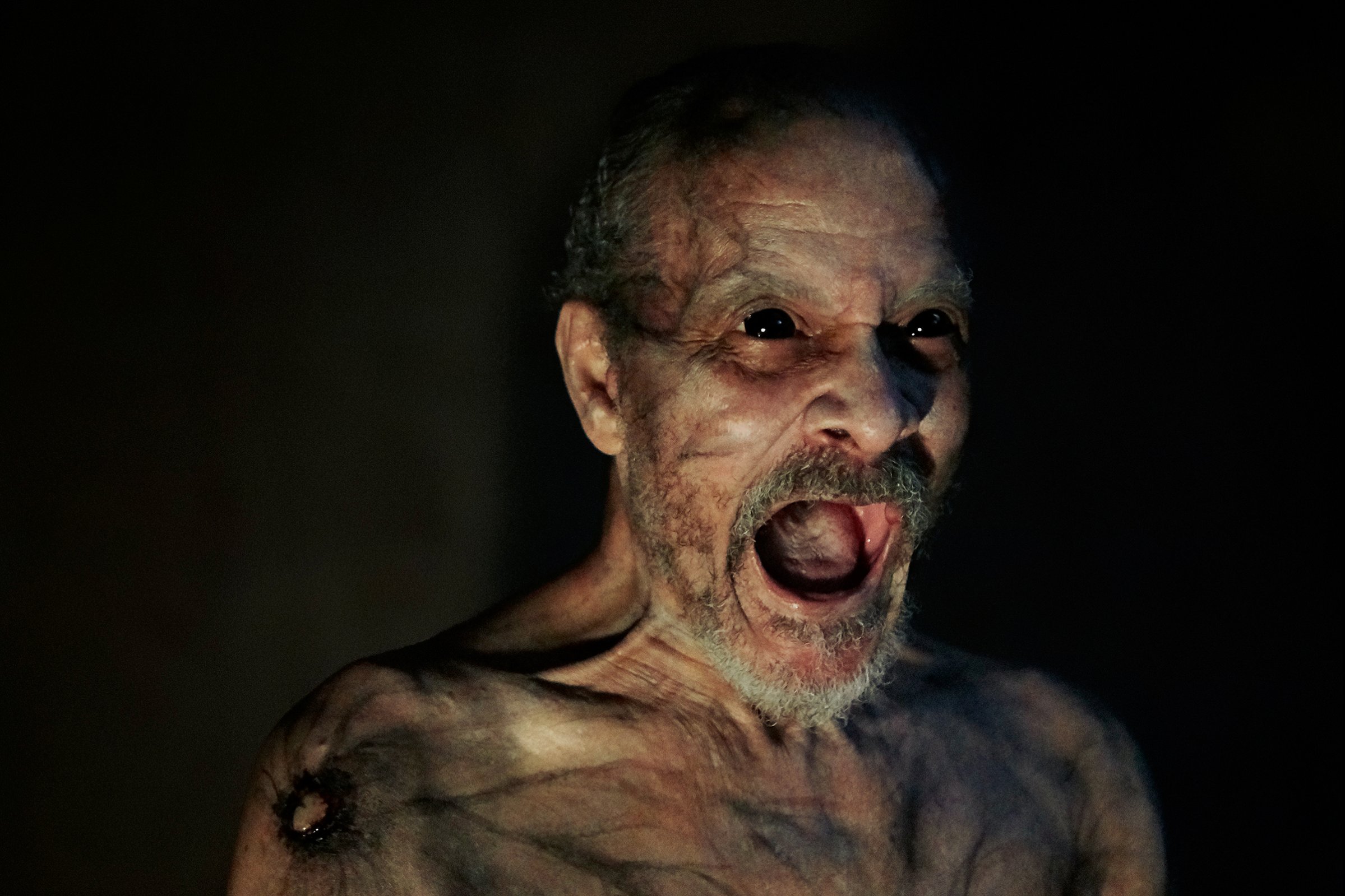
To be scared at the movies is a particular kind of pleasure, which might be why horror movies so often do well at the box office. Watching them at home is never the same, maybe because, in an audience, a glance to our right or left reminds us that we’re not the only ones alone in the dark. Together we make an army–fortified by Twizzlers and Diet Coke–against the zombie apocalypse, whether it’s onscreen or, figuratively speaking, right outside.
I wouldn’t want to watch Trey Edward Shults’ It Comes at Night alone. Unless you’re a particularly sturdy soul, I wouldn’t recommend that you do so either. The picture is part of the new breed of horror films that has emerged from the shadows in recent years, chilly little burnt offerings like The Babadook, The Witch and It Follows. These movies, made on small budgets but brushed with a sophisticated sheen, strive to deliver a more cerebral kind of shiver. They’re designed to make us think even as we’re shaking, and if they’re effective, there’s often something overcalculating about them too.
The creeping terror of It Comes at Night is implied–though that doesn’t make it any less terrifying. Joel Edgerton and Carmen Ejogo play Paul and Sarah, parents sequestered in their woodsy home with their 17-year-old son Travis (Kelvin Harrison Jr.). As the movie opens, they’re bidding a horrifying goodbye to Sarah’s father and Travis’ beloved grandfather, who has caught the plague of whatever it is that lurks just outside the family’s well-fortified door. This is a house with a lot of rules–Paul will do whatever it takes to protect his brood–and we can see Travis chafing under his father’s authority. Then a couple and their young son enter the family’s orbit. They include an attractive young woman, Kim (Riley Keough), and it’s easy to see why Travis, shy, sweet and sheltered, would be captivated. He’s a good kid, generous and eager to do the right thing, but his circumstances are extreme. He’s the spiritual kin of Anne Frank–growing up doesn’t stop when you’re shut inside a physically and emotionally claustrophobic space, hiding from the horrors of the outside world.
Harrison (who has had roles in Birth of a Nation and TV’s Shots Fired) gives a finely shaded performance. He hints at Travis’ subterranean frustration and resentment without overtly signaling it. In fact, just about everything in It Comes at Night is subtle. Shults is the gifted young director behind the bracing 2015 prodigal-family-member drama Krisha, which he made on the tiniest of budgets. (That film was shot in nine days, in his mother’s house.) Shults has more resources at his disposal here, and he uses them to elegant, disarming effect. The house in which Travis’ family is sequestered is all sharp angles and secretive shadows, a seemingly safe place that promises no safety. The surrounding forest is no haven either. Shults and cinematographer Drew Daniels shoot it like an eerie cathedral of crooked boughs and not-so-sheltering sky, a place where nature is fighting a losing battle against some unseen, unforgiving enemy.
It Comes at Night is somber and disquieting, a muted, blinking beacon of hopelessness. The craft behind it is admirable. You may find yourself enjoying the picture’s skillfulness even as you hope it will be over soon. In the end, its notions of what it means to trust–and to betray–make it feel like an overworked humanities exercise. But that doesn’t negate its sober spookiness. The half-glimpsed terrible thing in our own backyard might not be as terrible as what’s already in the house.
More Must-Reads from TIME
- Cybersecurity Experts Are Sounding the Alarm on DOGE
- Meet the 2025 Women of the Year
- The Harsh Truth About Disability Inclusion
- Why Do More Young Adults Have Cancer?
- Colman Domingo Leads With Radical Love
- How to Get Better at Doing Things Alone
- Michelle Zauner Stares Down the Darkness
Contact us at letters@time.com